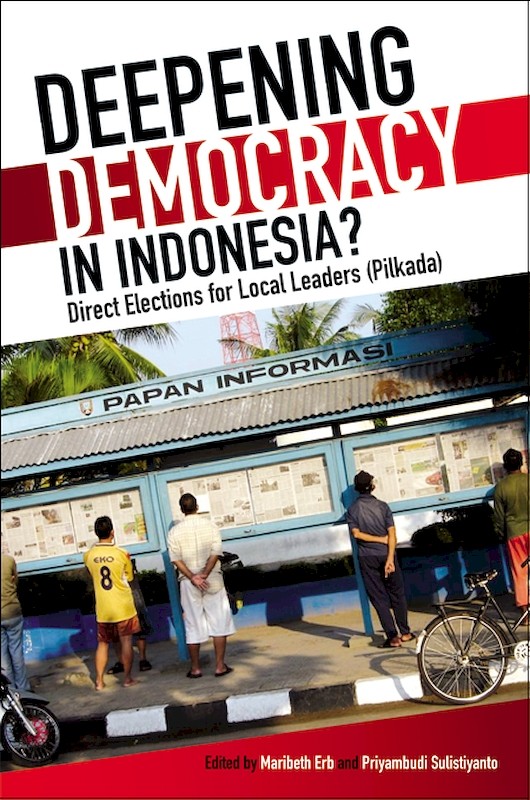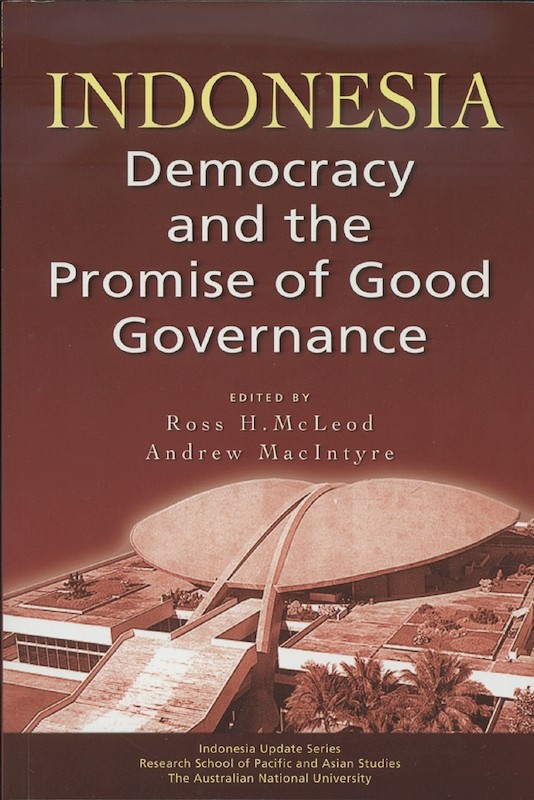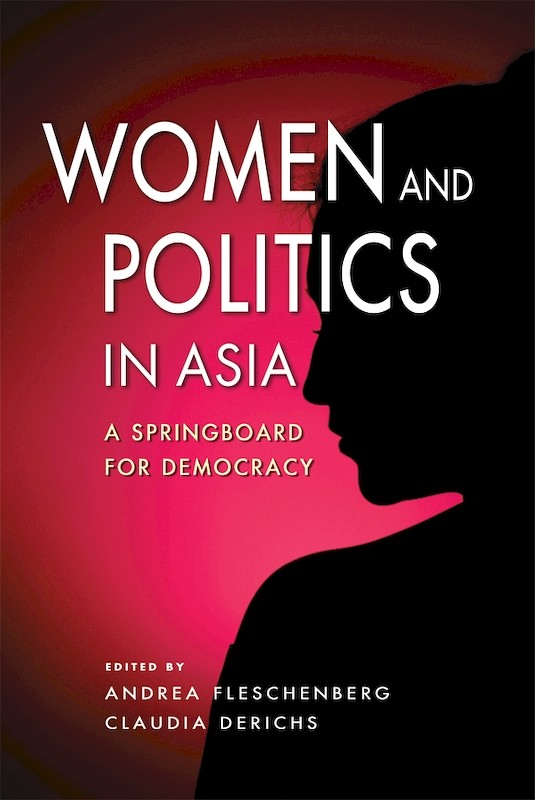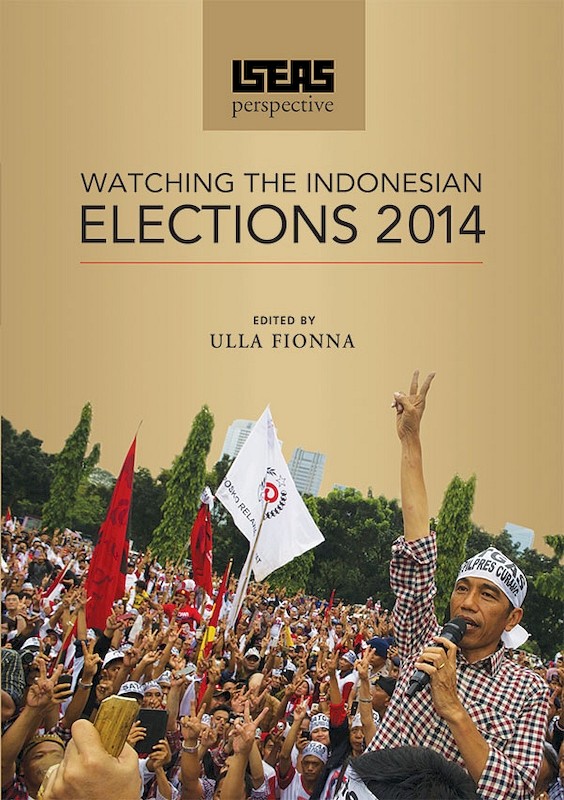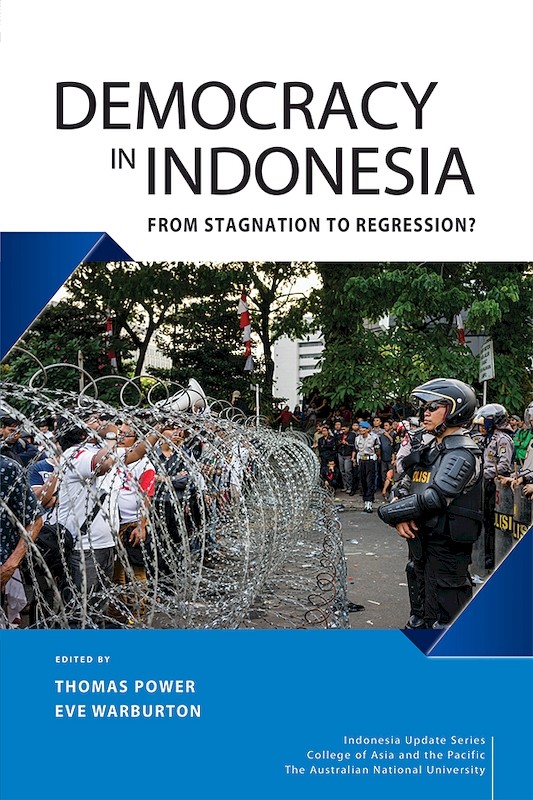Problems of Democratisation in Indonesia: Elections, Institutions and Society
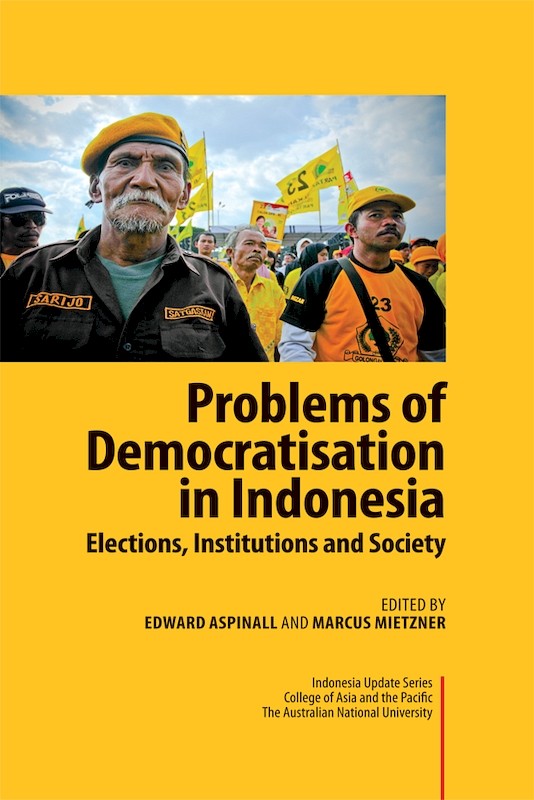
Date of publication:
2010
Publisher:
Institute of Southeast Asian Studies
Number of pages:
360
Code:
BM408
Reviews
"Recognising this diversity of opinion, Aspinall and Mietzner broadly identify three schools of thought in contemporary political science studies on Indonesia: The first one deems democratic change to be 'superficial, with core structures of power remaining unchanged' (p.1). In this view, mainly the old New Order elite have managed to adapt themselves to the new system and safeguard their privileges connected to public office. The second school of thought originates from a comparative perspective and results in a rather positive assessment of the Indonesian democratisation process. It postulates that 'Indonesia has done exceptionally well in consolidating its democracy' (p.2). Third, Aspinall and Mietzner identify a medium position, whose advocates believe that 'while Indonesia has made democratic progress, it remains crippled by severe structural problems, most notably corruption and weak law enforcement' (p.2). All authors provide high-quality research in their respective fields. Taking relevant developments over a longer period of time into account, each article focuses on the most recent developments in the immediate lead up to, or the immediate aftermath of, the 2009 elections in Indonesia. For that reason, this anthology offers a remarkably up-to-date collection of analyses that is rather unusual for edited volumes" (Journal of Current Southeast Asian Affairs).
"Democratic Indonesia defies easy classification, as Edward Aspinall and Marcus Mietzner observe in the introduction to this wonderful new volume on contemporary politics in that country. The problem is how to approach such a big and messy phenomenon as contemporary politics in the world’s fourth most populous country. Should one take a broad comparative view of Indonesian democracy from the perspective of other young democracies? Or should one drill down to the fine detail of everyday politics in the regions? Is Indonesian democracy about the institutions and how they function, or about society and how politics affects people’s lives? Aspinall and Mietzner take the position that, in fact, we need to consider all of the above to make sense of Indonesian democracy. That is what this volume provides. The result is a fine example of empirically rich political science research about one of the world’s most interesting polities. All of the chapters in the volume are well written and interesting, but the best are the ones that give the reader an insider ’s perspective on the inner workings of Indonesian democracy: among others, Adam Schmidt on the flawed administration of the 2009 elections, Stephen Sherlock on the parliament, and Ian Wilson on preman stand out. I imagine that these chapters will become standard references for Indonesianists and others who want quick but thorough introductions to these topics. Problems of Democratisation in Indonesia is a welcome contribution that should be read by all serious Indonesianists" (Bulletin of Indonesian Economic Studies).
"In Problems of Democratization in Indonesia, Edward Aspinall and Marcus Mietzner offer an eclectic approach to understanding recent developments through an edited volume that brings together the analyses of many of the leading scholars on Indonesian politics. Aspinall and Mietzner frame the contributions against the backdrop of the 2009 elections, the most recent since Indonesia democratized in 1999. After a thoughtful introduction, the book focuses on three broad areas: national level institutional politics, the role of social forces, and local and regional politics. As with many edited volumes, the variety of voices comes at the expense of a single theoretical framework. The volume instead allows the various authors to 'develop their distinct view, analyses and theoretical approaches' and in so doing provide a high level of detail and varying perspectives on the inner machinations of Indonesia's current political system. To that end, the work is a great success and offers readers a kind of intellectual buffet with a wide selection of high quality pieces reflecting the current state of Indonesian politics. The book is invaluable for those seeking to learn more about Indonesia, and especially about the 2009 elections" (Asia Pacific World).
About the publication
Alternately lauded as a democratic success story and decried as a flawed democracy, Indonesia deserves serious consideration by anyone concerned with the global state of democracy. Yet, more than ten years after the collapse of the authoritarian Suharto regime, we still know little about how the key institutions of Indonesian democracy actually function. This book, written by leading democracy experts and scholars of Indonesia, presents a sorely needed study of the inner workings of Indonesia's political system, and its interactions with society. Combining careful case studies with an eye to the big picture, it is an indispensable guide to democratic Indonesia, its achievements, shortcomings and continuing challenges.
Contents
-
Problems of Democratisation in Indonesia: Elections, Institutions and Society
[Whole Publication, ISBN: 9789814279918] -
Preliminary pages
-
1. Problems of Democratisation in Indonesia: An Overview, by Marcus Mietzner, Edward Aspinall, authors
-
2. Indonesia's Place in Global Democracy, by Larry Diamond, author
- PART I: MANAGING DEMOCRACY
-
3. Indonesia's 2009 Elections: Defective System, Resilient Democracy, by Rizal Sukma, author
-
4. Voters and the New Indonesian Democracy, by Saiful Mujani, R William Liddle, authors
-
5. Indonesia's 2009 Elections: Performance Challenges and Negative Precedents, by Adam Schmidt, author
-
6. The Professionalisation of Politics: The Growing Role of Polling Organisations and Political Consultants, by Muhammad Qodari, author
-
7. The Indonesian Party System after the 2009 Elections: Towards Stability?, by Dirk Tomsa, author
-
8. The Parliament in Indonesia's Decade of Democracy: People's Forum or Chamber of Cronies?, by Stephen Sherlock, author
- PART II: SOCIETY AND DEMOCRATIC CONTESTATION
-
9. Entertainment, Domestication and Dispersal: Street Politics as Popular Culture, by Ariel Heryanto, author
-
10. The Rise and Fall of Political Gangsters in Indonesian Democracy, by Ian Wilson, author
-
11. Increasing the Proportion of Women in the National Parliament: Opportunities, Barriers and Challenges, by Sharon Bessell, author
-
12. Pushing the Boundaries: Women in Direct Local Elections and Local Government, by Hana A Satriyo, author
- PART III: LOCAL DEMOCRACY
-
13. Decentralisation and Local Democracy in Indonesia: The Marginalisation of the Public Sphere, by Michael Buehler, author
-
14. Services Rendered: Peace, Patronage and Post-conflict Elections in Aceh, by Blair Palmer, author
-
15. Electoral Politics and Democratic Freedoms in Papua, by Richard Chauvel, author
-
16. The Normalisation of Local Politics? Watching the Presidential Elections in Morotai, North Maluku, by Sidney Jones, author
-
Index
Indonesia Update Series
-
2009Indonesia beyond the Water's Edge: Managing an Archipelagic State
-
2008Expressing Islam: Religious Life and Politics in Indonesia
-
2007Indonesia: Democracy and the Promise of Good Governance
-
2006Different Societies, Shared Futures: Australia, Indonesia and the RegionJohn Monfries, editor
-
2005The Politics and Economics of Indonesia's Natural ResourcesBudy Resosudarmo, editor
-
2004Business in Indonesia: New Challenges, Old Problems
-
2003Local Power and Politics in Indonesia: Decentralisation & Democratisation
-
2002Women in Indonesia: Gender, Equity and Development
-
2001Indonesia Today: Challenges of History
-
2000Indonesia in Transition: Social Aspects of Reformasi and Crisis
-
1999Post-Soeharto Indonesia: Renewal or Chaos?Geoff Forrester, editor
-
1997Indonesia Assessment: Population and Human Resources
-
1994Indonesia Assessment 1994: Finance as a Key Sector in Indonesia's DevelopmentRoss H McLeod, editor

